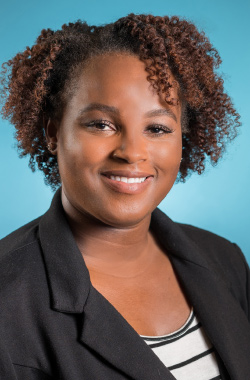Understanding the signs, symptoms, and risk factors of stroke
- Category: Living Well
- Posted On:
- Written By: Eboni Payton, APRN

Louisiana residents are vulnerable to a stroke
The American Heart Association designates the entire month of May to focus on a national health issue that impacts a person every forty seconds; every four minutes, someone dies, and the health issue is stroke. In 2018, more than 430,000 Emergency Room visits were related to someone suffering a stroke, and here in Louisiana, it is the fourth leading cause of death. Over the next few weeks, West Jefferson Medical Center will delve more into the issue of stroke, what causes it and what you can do to lower your risk of having one.
What is a stroke?
A stroke is a condition caused by abnormal blood vessels in the brain. There are two major types of stroke and another form that is serious but not as deadly:
- Ischemic: this type of stroke occurs when the artery that supplies the oxygen-rich blood to the brain gets blocked
- Hemorrhagic: this type of stroke occurs when the artery leaks blood or ruptures, allowing the blood to invade brain tissue, which puts pressure on the brain
Then there is something called a TIA, which stands for transient ischemic attack, and when a TIA occurs, the blood flow is blocked, but for only a short time, which limits the amount of damage that happens to the brain
According to the Center for Disease Control and Prevention (CDC), 87 percent of all strokes that occur are ischemic, which is why it’s vital that people know the warning signs of stroke as the saying, “Time is brain,” could not be a more true statement. To understand that concept, consider this; the moment a stroke occurs, brain cells begin to die; one hour after a stroke, 120 million brain cells will die if not treated. There’s a simple way to understand warning signs as all you need to remember is the term BE FAST:
B - sudden loss of balance
E - loss of vision in one or both eyes
F - face looks uneven or droopy on one side
A - arm or leg weakness on one side
S - slurred speech
T - terrible headache, the worst headache you’ve experienced
If you or someone you know begins to experience these symptoms, call 9-1-1 or get to the ER immediately, as again, “Time is brain.”
Southern states lead the way in stroke
The South, specifically in our area, is known for many things; our festivals and special events, our cuisine, and our desire to enjoy life regardless of what is handed to us. While those are good characteristics, they are also part of why we live in what the medical community calls the “Stroke Belt,” a large swath of the U.S. where strokes and stroke deaths are more common, and it has to do with our lifestyle. Some of the most common issues that can lead to stroke include:
- Smoking
- High blood pressure
- High cholesterol
- Diabetes
- Obesity
- Alcohol/drug abuse
- Medication non-compliance
Like most things, diet does play a substantial role with stroke, so doing your best to maintain a healthy weight and eating a good, balanced diet can reduce some risks. And don’t forget exercise, that’s equally as important for both the mind and the body.
For patients who run the risk of stroke or who have had one, West Jefferson is proud to announce a new, innovative medical institute that will, in part, focus on stroke and recovery. The LCMC Health Neuroscience Institute at West Jefferson Medical Center now offers multidisciplinary neuro care in one location. The institute houses various specialties dedicated to providing coordinated neurological, neurosurgical, and support services, including a state-of-the-art, 24 private bed rehabilitation center. This institute is the first of its kind in the region and brings together medical staff from both West Jefferson and the Culicchia Neurological Center. For more information on the LCMC Health Neuroscience Institute, you can call 504-349-1890. You can also subscribe to a newsletter to stay informed and learn more about all the conditions being treated at the new institute.
About Ebonie Payton, APRN: 
Eboni Payton is a nurse practitioner with advanced education and skills set to provide safe, high-quality, cost-effective, coordinated, and comprehensive clinical care grounded in evidence-based practice. Eboni graduated Magna Cum Laude from the University of Holy Cross before continuing her healthcare education at Herzing University, where she graduated with a nursing degree. Her problem-solving and analytical skills greatly benefit those she cares for as she manages patient cases, ensuring a continuum of care between physicians, specialists, and other practitioners. As part of her duties, Eboni also supervises other nurses and works closely with all medical personnel to create the best treatment plans for all patients.